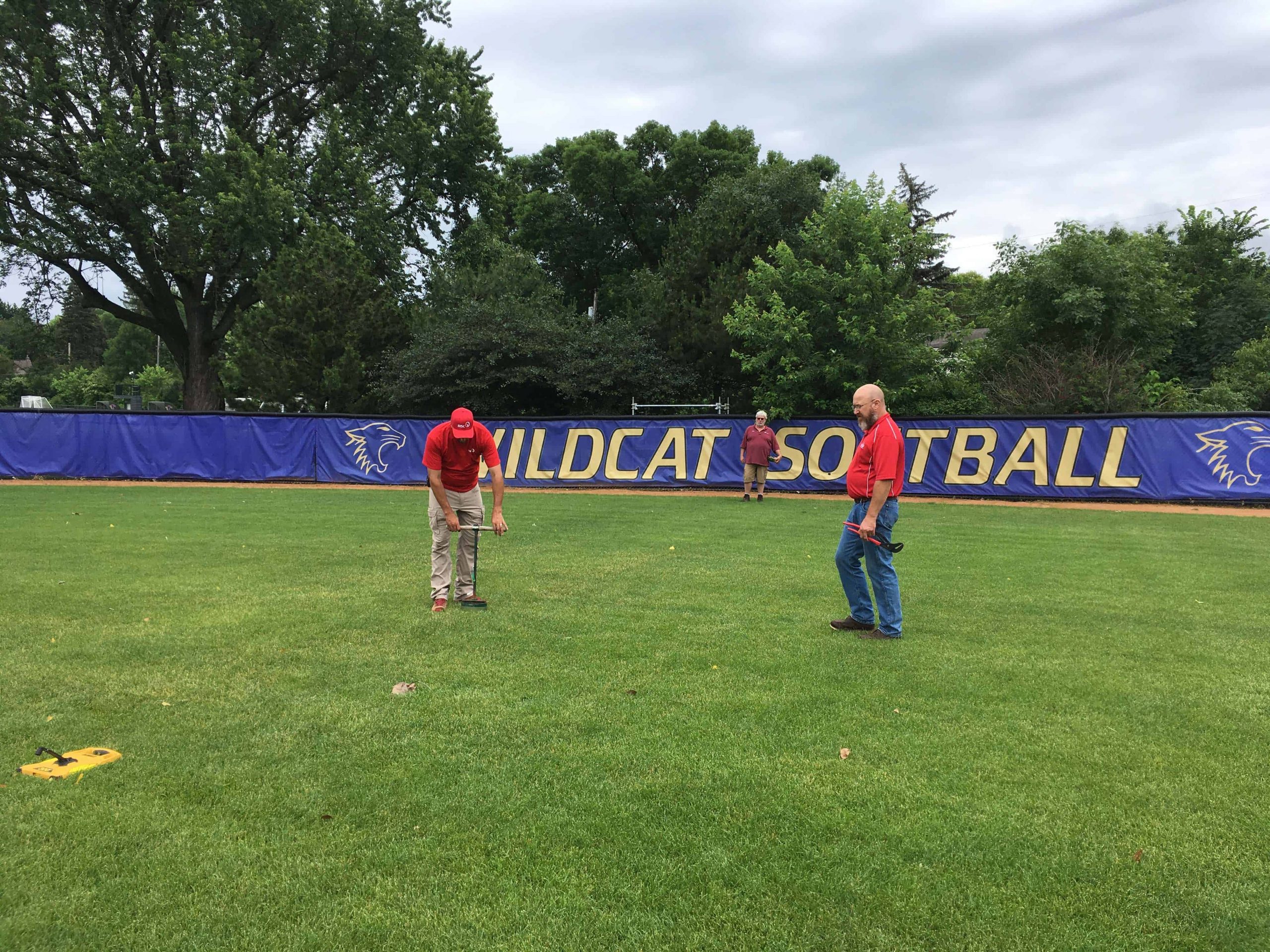Sports Turf & Spiio: How MSC Revitalize Turfgrass Water Management
Kent Harris has been in the irrigation industry since he was 16. Now, as manager of Minnesota Sodding Company, he looks for ways to revolutionize the way turfgrass water management is done. The Spiio, a smart turf sensor, is helping him do just that.
In 1978, 16-year-old Kent Harris took up a summer job with someone who installed residential sprinkler systems. Many boys his age looked to landscaping for extra cash during the summer—but for most, the job ended there.
Turfgrass water management is central to turf health – particularly root growth and disease prevention.
For Kent, on the other hand, the job kickstarted a lifetime career in landscape and irrigation. He stayed with the company that gave him that first summer job for seven years. He then moved to a bigger company, where he worked for eight years before starting an irrigation division for a local landscape contractor. Also an aquarium hobbyist, he describes himself as “surrounded by water.”
The Bigger Picture: Irrigation as Part of Turfgrass Management
After 24 years of hands-on experience in the industry, Kent’s career shifted toward the business side of things. He became a business developer for a large-scale company in Minneapolis, and eventually moved to the Minnesota Sodding Company, where he currently works as a manager.

MSC is a commercial sod and seed contractor with a focus on sports turf and sports turf irrigation/maintenance. Naturally, there is a lot that goes into managing turf. Not only does it affect the visual appeal of a sports field, but a healthy turf is important for the health and safety of the athletes who play on it. In all these elements, turfgrass water management is central to turf health—particularly root growth and disease prevention.
Healthy turf is important for the health and safety of the athletes who play on it.
Spiio gives experts like Kent the freedom to experiment—to run a sports field down to 3% moisture and find its threshold.
Turf and Timing
One of the things Kent loves about MSC is the energy there. In the time he has been there, he has seen that energy enable the company to take on new challenges and expand its reach. For example, when he first started, Kent noticed that MSC didn’t have much to offer in the way of water management — except, of course, for him and his expertise. He didn’t think much of it, then, when he ran into Chris Thorup’s booth at the 2019 STMA conference in Phoenix, Arizona. Chris introduced him to the Spiio product, a smart turf sensor that alerts landscapers and other interested parties to real-time data about soil moisture to inform their irrigation decisions.
Later, however, Minnesota Sodding Company took on a new project—they contracted to care for a sand-based high school soccer field, including irrigation. They soon saw the water management side of the business blossom, and now manage multiple schools and a Lifetime Sports soccer venue – a former NFL practice field. This brought sports turf irrigation to the forefront of Kent’s mind, and when Spiio followed up with him, he was ready to give it a try. Chris flew out from California to meet Kent and help install six trial turf sensors. MSC now uses the Spiio sensor regularly to aid their turfgrass water management efforts.

Always Learning: New Questions and Possibilities for Sports Fields
The Spiio, says Kent, offers “a whole new way of doing things.” Turfgrass water management used to either be solely visually oriented or extremely time consuming. With current and relevant data about turf moisture being sent directly to Kent’s phone, however, he can efficiently and effectively make water management decisions.
With current data about turf moisture being sent directly to Kent’s phone he can efficiently make water management decisions.
He also notes the importance of that aspect of the process—making decisions. Unlike some other products, the Spiio does not automate irrigation based on its data as a default. Rather, it sends the information to stakeholders who can make their own water management decisions about what to do with the information given. This gives experts like Kent the freedom to experiment—to run a sports field down to 3% moisture and find its threshold, for example. The most obvious benefit of such conservation is environmental. Kent notes, however, “I’m especially interested in the financial side of things”—both for his company and for their customers. There’s a huge financial advantage to this kind of experimentation. “With the money we save on water, we can reallocate turf budget dollars to fertilization and other important things for the health of the sports turf.”

Kent acknowledges that, when it comes to the Spiio and even in irrigation in general, he is “always learning.” For example, he wonders, what is the optimal number of sensors to install in a sports field? One corner of turf can have a drastically different soil composition and environmental situation than another, and so one turf sensor may not be enough to give him a full picture of the health of the sports field. On the other hand, having too many sensors is costly and inefficient. Kent is working to find the balance. By being willing to ask questions, try new things, and constantly seek to improve, Kent and the Minnesota Sodding Company stay at the forefront of their field. MSC, says Kent, works hard to build confidence and trust with customers as they communicate the data they gather from the Spiio to make decisions about sports turf irrigation. A commonly quoted adage at MSC is, “No one cares how much you know until they know how much you care.” The Spiio helps Kent create a complete turfgrass water management service. His expertise and experience in irrigation and in business give quality and efficiency to that service. But the human element is perhaps one of his greatest keys to success.
“No one cares how much you know until they know how much you care.” – Kent Harris, Minnesota Sodding Company

